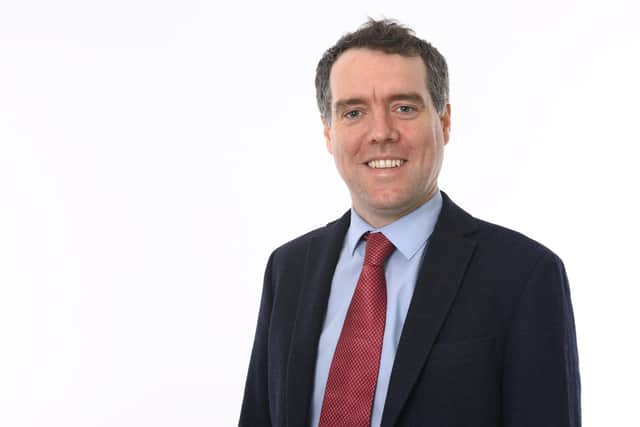What Yorkshire hotels and care homes fear from post-Brexit migration rules - Louis MacWilliam


The figures, published before Chancellor Rishi Sunak’s Budget, show a continuing and steady decline in the rate of annual net EU migration which is now at 64,000, down from previous highs of over 200,000 in 2015 and early 2016.
Despite this, the Government seemed to determine to create the impression that, from 2021, only higher-paid, higher-skilled migrants would be coming to the UK.
Advertisement
Hide AdAdvertisement
Hide AdThis is at best simplistic, given that in the future migrants can do lower skilled jobs at a lower wage, making it significantly easier for non-EU nationals to come to the UK.


But these liberalising measures do not help the care and hospitality sectors, nor do they counteract the end of free movement, which means we can look forward to the elderly and disabled people facing greater difficulties accessing support. Meanwhile, rising labour costs in the hospitality sector will leave us facing higher restaurant and hotel bills.
The latest changes were promoted as moving towards a model of highly skilled migration. It is true that free movement of EU nationals has been a route for lower skilled migration.
An EU national can presently come to the UK without a job offer. Even before Brexit and the introduction of the new EU Settlement Scheme, an EU citizen was legally resident if they worked a part-time, minimum wage job for just 10 hours a week.
Advertisement
Hide AdAdvertisement
Hide AdHowever, the latest stats show that net rate of migration from EU nationals was 64,000, compared to 250,000 from non-EU nationals: non-EU nationals therefore outnumber EU nationals by four to one.


The broader immigration changes see the minimum skill level for jobs drop from degree level to A-Level, whilst the minimum salary threshold falls from £30,000 to £25,600. The cap on the number of people who can be sponsored will also be abolished.
In short, EU nationals lose out massively, at the expense of non-EU nationals. And the people who make up the bulk of new arrivals, non-EU nationals, can now come in less skilled and lower paid positions.
That said, the care and hospitality sectors still seem to be in serious trouble, as they lose the flow of lower-skilled, lower-paid migration. The liberalising measures announced last week do not mitigate this effect, as many potential migrants looking to work in care or hospitality will not be able to meet the new reduced minimum salary thresholds, or, on occasion, the lowered minimum skill threshold.
Advertisement
Hide AdAdvertisement
Hide AdPeter Banks is the managing director at Rudding Park, a Harrogate-based hotel business which last year employed 65 EU nationals but now employs 40 and is already feeling the chill of Brexit.
Banks notes: “What the Government is doing makes perfect sense. They want a high-wage, high-skill economy, but hospitality does not fit these definitions.”
According to Banks: “The Government is basically telling us ‘be more productive or go bust’. If I’m being honest, the hospitality sector did well in the years since Blair opened the door to unfettered immigration. But there will have to be higher prices across the sector, as well as job cuts.”
Konrad Czajka heads up the Czajka Care Group, a family-run company with five care homes in Bradford. He is also the Chair of the Bradford Care Association. He tells me that 43 per cent of people aged 85 years or over require care support. However, only 20 per cent of these people receive such support.
Advertisement
Hide AdAdvertisement
Hide AdThere are currently 122,000 care vacancies and the sector has an exceptionally high turnover rate of 30.7 per cent. This means that in the last year, 390,000 care workers changed jobs or left the sector.
My second gripe seems to me an obvious shortcoming, but one that I have not heard aired elsewhere: whilst it is all very well to leave higher-skilled and higher-paid jobs to migrants, the corollary of this is that we are reserving the lower-skilled, lower-paid jobs to us and our children. This seems a highly confused approach to immigration policy.
Whatever the logic, we can expect to see higher costs and shortages in the care sector. Meanwhile, many hotels and restaurants will go out of business as increased consumer costs will make such places a luxury we can no longer afford.
Louis MacWilliam is an immigration solicitor and Head of Immigration at Truth Legal Solicitors in Harrogate.
Comment Guidelines
National World encourages reader discussion on our stories. User feedback, insights and back-and-forth exchanges add a rich layer of context to reporting. Please review our Community Guidelines before commenting.